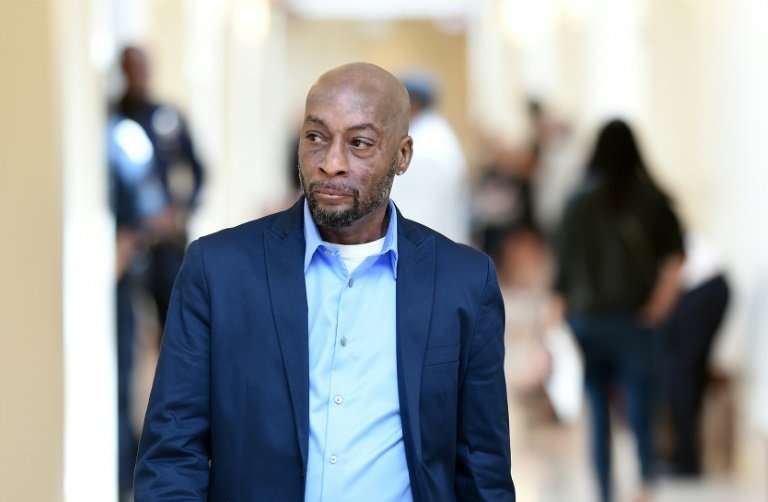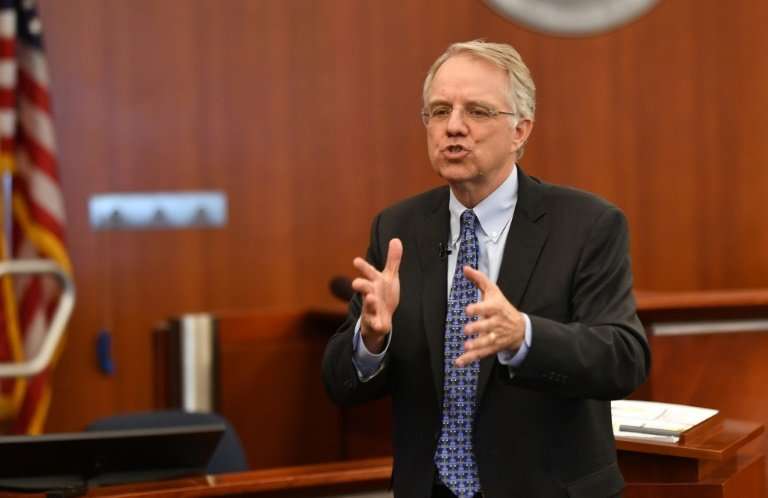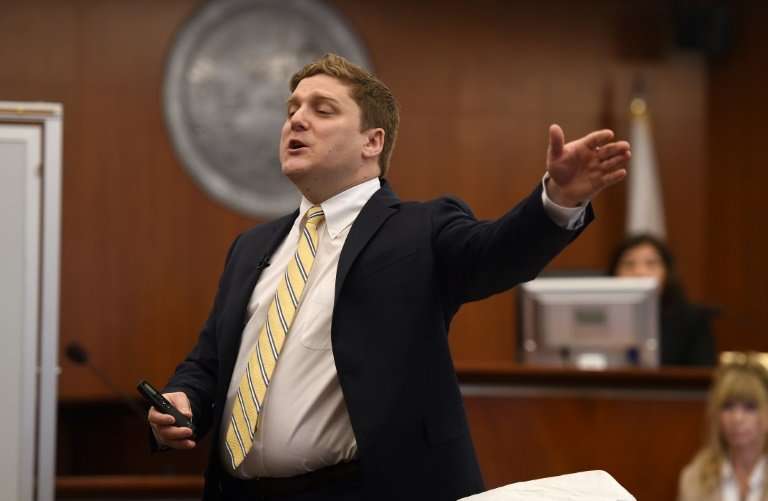Jurors mull 'day of reckoning' in Roundup cancer trial

The lawyer for a California groundskeeper dying of cancer urged jurors Tuesday to make Monsanto pay hundreds of millions of dollars for failing to warn about the health risks of weed killer Roundup.
"Today is their day of reckoning," attorney Brent Wisner told jurors as he urged them to impose a penalty of more than $400 million on Monsanto for hiding the cancer-causing potential of Roundup and commercial strength version Ranger Pro.
"Every single cancer risk found had this moment, where the science finally caught up, where they couldn't bury it anymore."
Terminally-ill Dewayne Johnson watched as his attorney accused Monsanto of putting profit over people's health by fighting research signaling Roundup's potential cancer risks and failing to issue warnings.
Johnson, 46, testified that he would "never" have used Roundup or Ranger Pro had he known it could lead to his illness.
The monthlong trial pits Johnson against the agrochemical colossus recently acquired by Germany-based Bayer in a deal valued at about $62 billion.
Diagnosed in 2014 with non-Hodgkin lymphoma, a cancer that affects white blood cells, Johnson used Ranger Pro repeatedly in his job at a school in Benicia, California, after being promoted to groundskeeper in 2012.
Wisner said Monsanto opted against warning consumers of the risks and that instead "they have fought science" by playing down the suspected link between the chemical herbicide and cancer.
The case is the first to reach trial alleging a cancer link from Roundup, one of the world's most widely used herbicides.
'High rhetoric'
The legal clash involves dueling studies, along with allegations Monsanto thwarted potentially damning research.

"There was a lot of high rhetoric here about just how terrible things are at Monsanto," defense attorney George Lombardi said during closing arguments.
"Unless (Wisner) can tie it to Mr Johnson's cancer, none of this means anything."
Wisner accused Monsanto of attacking research using the same tactics previously employed by other businesses to conceal proof of the health hazards of tobacco, benzene and asbestos.
"They are using the same playbook," Wisner told AFP outside the courtroom.
"We know how the tobacco story ends and we know how the Monsanto story will end at some point in my lifetime."
Johnson was drenched with the weed-killer twice when spraying gear malfunctioned, according to testimony at trial.
He called the Monsanto hotline, but received no follow-up calls from representatives despite promises they would do so.
Instead, Monsanto started plotting defenses for Roundup, ghost-writing research and citing it, according to Wisner.
Wisner contended that the active ingredient glyphosate, combined with other chemicals in the weed killer, resulted in a cancer-causing "synergy."
A key to Johnson's case will be whether jurors are convinced that Monsanto's pesticide caused or exacerbated his illness.
"We all know cancer is a complicated disease," Wisner said while stressing that the bar for proving cases in civil suits is lower than that in criminal cases.

"We don't have to show Roundup was the sole cause; we only have to show it is a contributor."
Glyphosate's cancer links have been the source of long debate among government regulators, health experts and lawyers.
If Monsanto loses, the case could open the door to hundreds of additional lawsuits against the company.
"Your verdict will be heard around the world," Wisner told jurors.
"Monsanto will have to finally do something—conduct those studies they never conducted and warn those people they never warned."
Jurors return to the San Francisco courtroom early Wednesday for instructions from the judge before commencing deliberations.
"The message from the evidence is clear, and that is this cancer was not caused by Ranger Pro," Lombardi argued.
"The facts are what should lead you in this case."
Lombardi questioned the timing of Johnson's diagnosis, saying it came so soon after using the weed killer that it was more likely his cancer had already taken hold.
"The story just doesn't make sense," Lombardi told jurors.
Launched in 1976, Monsanto's flagship herbicide Roundup has been approved by the US Environmental Protection Agency for decades.
In 2015, the International Agency for Research on Cancer—a World Health Organization body—classified glyphosate as "probably carcinogenic," and as a result, California listed it as carcinogenic.
© 2018 AFP



















